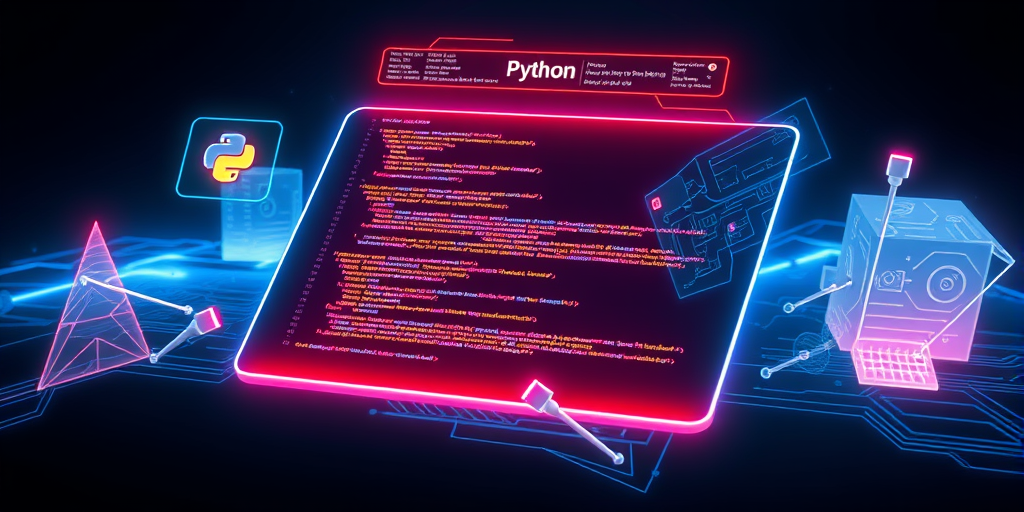
Codellama: Advancing Python Code Generation with Specialized LLMs

The Codellama large language model (LLM), maintained by Code Llama, is a specialized suite of fine-tuned models designed for Python coding tasks. Built upon the Llama 2 foundation, it offers multiple variants tailored to different needs, including CodeLlama-7b, CodeLlama-13b, CodeLlama-34b, and CodeLlama-70b models, with larger sizes providing enhanced capabilities. Additionally, Python-specific versions like CodeLlama-7b-Python and CodeLlama-70b-Python are optimized for code generation and understanding, while Instruct variants such as CodeLlama-7b-Instruct and CodeLlama-70b-Instruct are tuned for interactive coding tasks. All models leverage their respective base architectures, ensuring flexibility and scalability for developers. For more details, refer to the official announcement here.
Key Innovations in Codellama: Advancing Code Generation and Instruction Following
The Codellama model introduces groundbreaking advancements in code generation and instruction-following capabilities, building on Llama 2 while addressing specific developer needs. A major innovation is its infilling capabilities, enabling seamless code completion between prefix and suffix blocks, which significantly improves productivity. It also offers multiple model sizes (7B, 13B, 34B, 70B) with up to 100,000 token input context lengths, far exceeding many existing models. The 100B tokens of Python-specific training ensure exceptional performance on coding tasks, while instruction-following variants (e.g., Code Llama - Instruct) enhance safety and helpfulness in interactive scenarios. These innovations collectively set a new standard for code-centric LLMs.
- Built on Llama 2 with specialized variants for code generation and instruction following.
- Infilling capabilities for context-aware code completion between prefix and suffix blocks.
- Multiple model sizes (7B, 13B, 34B, 70B) with 100,000 token input context lengths.
- 100B tokens of Python-specific training for optimized coding performance.
- Instruction-following models (e.g., Code Llama - Instruct) for safer and more reliable responses.
Possible Applications of Codellama: Exploring Its Potential in Code-Centric Tasks
Codellama's versatility makes it possibly suitable for a range of applications, particularly in domains where code generation, instruction following, and Python-specific expertise are critical. Software development and code generation could benefit from its infilling capabilities and large-scale training, enabling developers to write and refine code more efficiently. Educational tools for learning programming might leverage its instruction-following variants to provide interactive, personalized guidance, while research in code completion and natural language processing could explore its multi-size architecture and 100B-token Python training for novel insights. These applications are maybe viable, but each must be thoroughly evaluated and tested before use.
- Software development and code generation
- Educational tools for learning programming
- Research in code completion and natural language processing
Limitations of Large Language Models: Challenges and Constraints
Large language models (LLMs) face several common limitations that can impact their reliability and applicability. These include challenges in data quality and bias, as training data may contain inaccuracies or reflect historical prejudices. LLMs often lack real-time knowledge, relying on static datasets up to a specific cutoff date, which limits their ability to provide up-to-date information. Additionally, they may struggle with complex reasoning tasks, generating plausible but incorrect responses due to their statistical patterns rather than true understanding. Ethical concerns, such as privacy risks and the potential for misuse in spreading misinformation, further highlight their constraints. While these models are powerful tools, their limitations possibly necessitate careful oversight and complementary human verification.
- Data quality and bias
- Static knowledge cutoff dates
- Challenges in complex reasoning
- Ethical risks (privacy, misinformation)
Advancing Code Generation with Open-Source LLMs: A New Era for Developers
The Codellama series represents a significant leap forward in open-source large language models, offering specialized tools for Python coding tasks with a focus on code generation, instruction following, and scalability. Built on Llama 2, it provides multiple variants—ranging from 7B to 70B parameters—with infilling capabilities, Python-specific training on 100B tokens, and instruction-tuned models to enhance safety and usability. These features make it a versatile choice for developers, educators, and researchers, possibly enabling breakthroughs in software development, educational tools, and code-related research. While its open-source nature fosters collaboration and innovation, users should carefully evaluate its performance for specific tasks. The model’s flexibility and robust training underscore its potential to reshape how code is written, understood, and optimized in the AI era.
Comments
No comments yet. Be the first to comment!
Leave a Comment